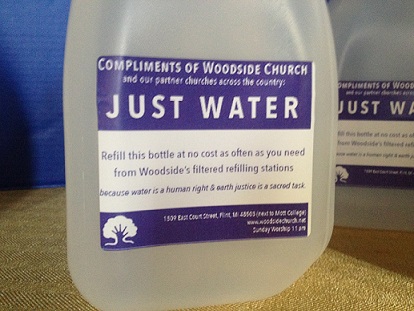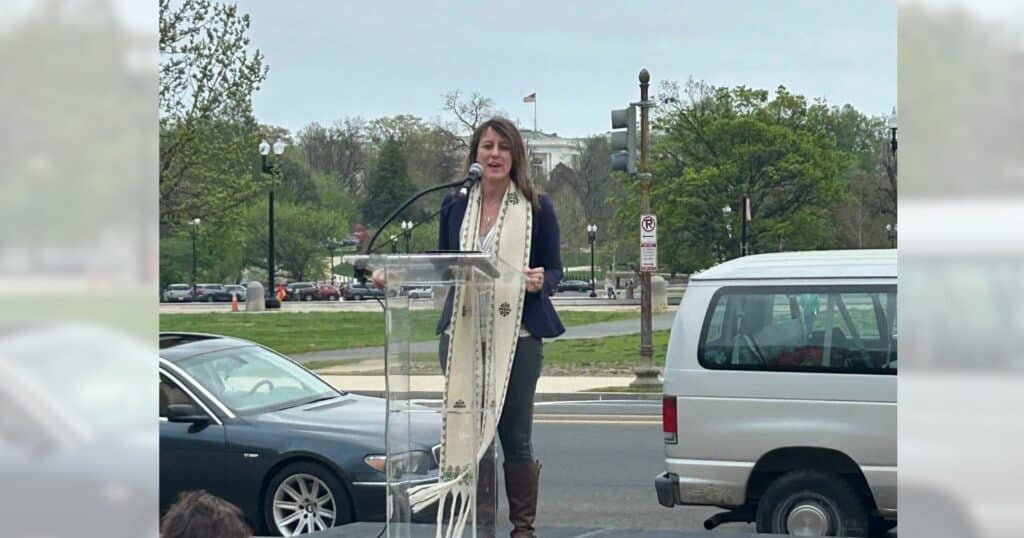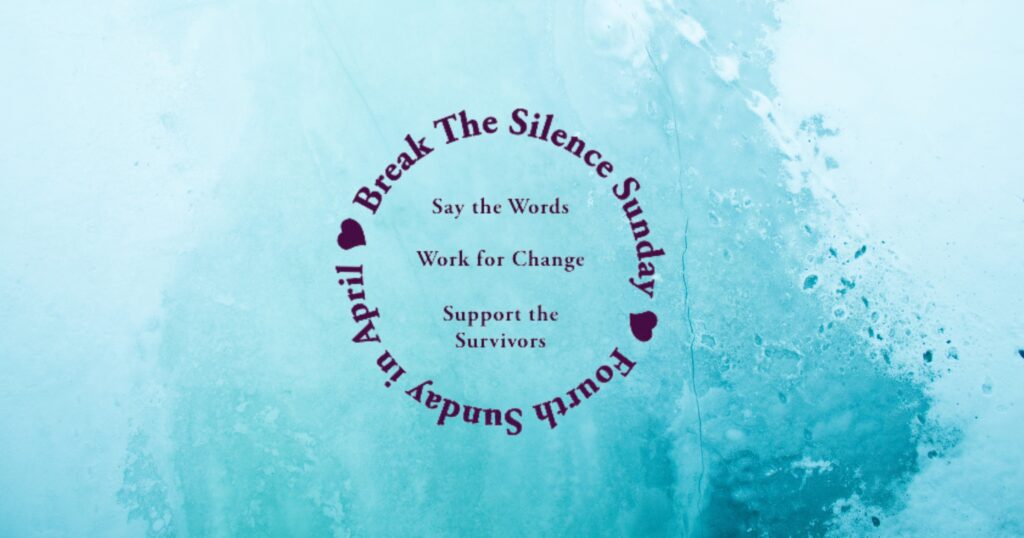Flint church offers to pay delinquent water bills of neighbors in need
 For more than two years, the people of Flint, Mich., hadn’t been able to drink the tainted water that ran out of the faucets in their homes. Many didn’t or couldn’t pay the bills for water that wasn’t fit to drink. The city is now trying to collect on those past-due bills, threatening to shut off their water and use tax liens to foreclose on the homes of those who cannot pay.
For more than two years, the people of Flint, Mich., hadn’t been able to drink the tainted water that ran out of the faucets in their homes. Many didn’t or couldn’t pay the bills for water that wasn’t fit to drink. The city is now trying to collect on those past-due bills, threatening to shut off their water and use tax liens to foreclose on the homes of those who cannot pay.
The Woodside Church is offering to help pay water bills of families in Flint whose service has been shut off. As pastor the Rev. Deb Conrad said, “Piece by piece we are doing what we can for our neighbors.”
The Woodside Church, dually affiliated with the United Church of Christ and the American Baptist Churches, has been a first-responder in the Flint water crisis, advocating for a remedy and assisting others by providing bottled water for drinking and bathing after lead, bacteria and other toxins started showing up in the water in 2014.
During the height of the disaster, the church was a distribution center for bottled water, which the congregation still provides. “We buy gallon jugs, fill them up and invite the community to come take them,” Conrad said.
UCC and American Baptist congregations around the country sent bottled water and financial support to Woodside, and Conrad says she is tapping into that fund to keep the water flowing to homes in Flint.
“It’s the money UCC and American Baptist congregations have been sending us because of the water crisis,” Conrad said. “I want people to know what we are doing with these gifts.”
Woodside received about $85,000 in donations and earmarked $35,000 for four plumbing projects to add filter stations and replace water fountains (with new ones that have filters built in) in the church facility and the facilities of three other organizations in Flint where residents can come and collect safe drinking water. The work at the church, which replaced four fountains and added filters to the sink in the kitchen area for cooking and cleaning, cost about $10-12,000. Two of the three other projects are now uncertain, so there may be more than $50,000 available to assist neighbors in need.
 “We have committed to replace water pipes for one family and helped people pay water bills before, Conrad said, “but not to this broad degree.”
“We have committed to replace water pipes for one family and helped people pay water bills before, Conrad said, “but not to this broad degree.”
While Woodside will gift thousands of dollars, paying an average of about $500 per family toward delinquent water bills, Conrad points out it’s just a drop in the bucket.
“They’re talking about a potential 8,000 customers affected,” Conrad continued. “Just me, I pay $90 a month for 6 months. (In arrears) that’s more than $500. Times 8,000. We don’t have that, but we have something that can help. I think it would take a half-million dollars to cover all the delinquent bills.”
The state of Michigan subsidized credits the water department was issuing to customers to cover the contamination problems, so for several months Conrad didn’t have to pay a bill. But that’s not typical.
“Many people stopped paying their water bill when they couldn’t use the water, so went into the period of credit with bills in arrears,” she said. “I don’t blame people for doing that.”
The state subsidies ended in April and the city of Flint said it is in a bind and needs the cash. So shut off notices went out.
San Juana “Juani” Olivares, president and CEO of the Genesee County Hispanic Latino Collaborative (GCHLC), is sharing Woodside Church’s offer of assistance with 200 families that GCHLC serves. Some have already lost their water service.
“Police are showing up with the shut off notices and within the next five to ten minutes the city crews show up to shut off the water so our families are not able to go out and seek help,” Olivares said. “Once they get shut off, the minimum payment is half of what they owe. If they own their home and the water is shut off, if they can’t pay, they lose their home. If they are a renter, and they have to relocate, they lose the home they’ve lived in for years. There are resources, and assistance, but those are for U.S. citizens, permanent residents. Not for someone who is undocumented. We are trying to find them help, but not having luck because of their legal status. They tell me, ‘It’s either we pay rent or we pay water.’ If they have kids at home, they pay rent.”
The GCHLC, with a grant from UCC Disaster Ministries, has been able to provide interpreters for Spanish-speaking households in need of medical attention because of the water crisis.
While Olivares and Conrad say the collaborative and the church will do what they can, the need is overwhelming.
“I’ve had three calls this morning,” said the Rev. Jay Cummings, a retired minister and member of the Woodside Community and Social Justice Committee. “I am trying to stretch our assistance as far as I can by reconnecting with four other churches that have helped meet emergency needs like this. I am hopeful they will be able to help.”
“One of the bills I saw yesterday was $2,600,” Conrad said. “Folks have been dropping them off at the church. I had a stack in my mailbox of more than a dozen, with Juani and Jay telling me that many more are on the way. My expectation is today will we be writing checks for $10,000, and over the next two weeks for $20,000-30,000 more.”
Related News
Churches for Middle East Peace marks 40th anniversary: Words and deeds prevail at advocacy summit
Churches for Middle East Peace (CMEP), a coalition of more than 30 national churches and...
Read MoreUCC Stewardship materials now available
The new United Church of Christ stewardship materials are now available from UCC Resources to...
Read MoreApril 28 is Break the Silence Sunday: Congregations join in supporting survivors of sexual assault
This news piece features discussion of sexual assault. When the Rev. Moira Finley set up...
Read More


